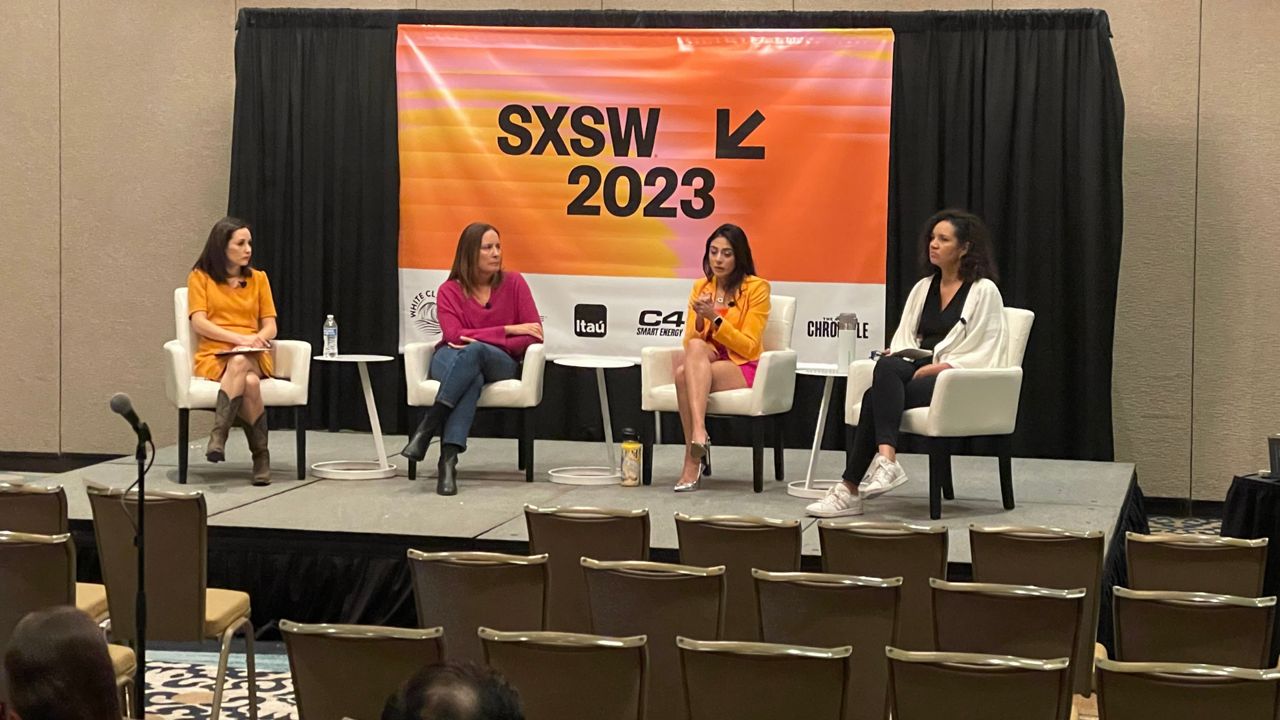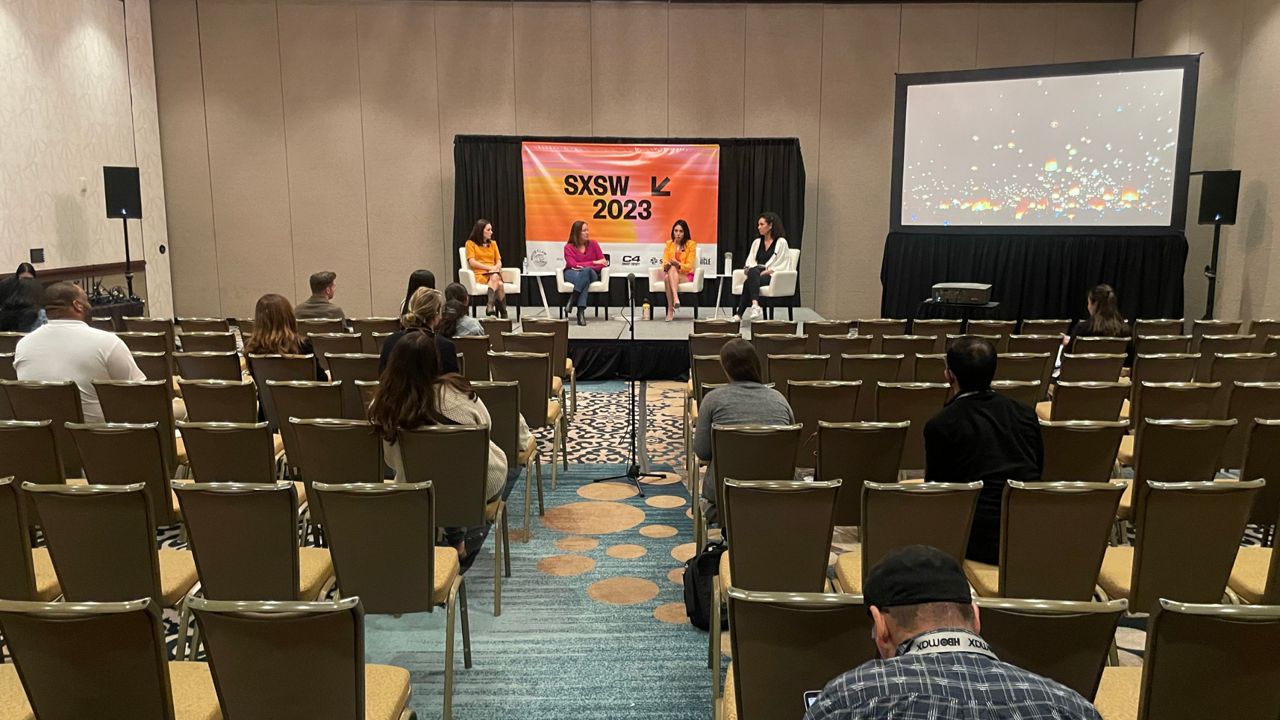AUSTIN, Texas — As Texas leaders boast about the state’s economic growth, people experiencing hunger are in every county. A South by Southwest Conference & Festivals panel examined food insecurity in Texas and how important it is to put people who’ve experienced this at the forefront of public policy. Speakers on the panel at the Hilton Austin on March 13 insisted attendees sharpen their awareness of hunger and understand the political challenges ahead of us all to eradicate it.
Nichole Abshire and Claire Campos-O’Neal, co-hosts of the podcast “Go Behind The Ballot,” joined the stage with Celia Cole from Feeding Texas and communications executive Lawson Picasso of the San Antonio engineering firm WSP.
More than 3 and a half million Texans use the Supplemental Nutritional Assistance Program (SNAP) to afford groceries. Cole said SNAP is the country’s “backbone defense” in addressing hunger. It’s one of many other meal programs that serve low-income families.
Cole explained Feeding Texas has 21 food banks across the state delivering hundreds of millions of pounds of food every year. She said sometimes SNAP and food charities work hand-in-hand as there’s an overlap in people whose benefits have run out and those who aren’t eligible for SNAP benefits. However, for every one meal a charitable food program provides, SNAP can supply nine.
“So, that goes to show you a sense of where we need to have a national response, a collective response to hunger. Charity cannot be relied on to address a problem that’s this big in scope.”
Campos-O’Neal cited Feeding Texas, stating that one in eight Texans experiences food insecurity, the inability to afford or access enough food for a healthy life. Many people that face food insecurity are often left to decide between food and health care or food and utilities. Picasso directly spoke to that experience after a personal situation led her to be homeless at age 20.
With her dog in tow, Picasso lived out of her car for six months and landed a job at Hooters, which included a free gym membership. So, she was able to have a place to take hot showers and charge her phone.
Picasso said she knew of some public assistance programs, but it would have taken time away from her job had she gone to fill them out. “The inaccessibility or lack of convenience for me was trying to get to the [public assistance] office just to fill out paperwork. It didn’t fit my lifestyle, because if I did that, I’d miss work, and if I missed work, that was less money,” Picasso stated.
There are so many other layers at play that are unbeknownst to others, as people going through similar scenarios are fearful of being stigmatized. Picasso did all she could to suppress that part of her and put up a facade that no one would be able to see through.
In acknowledging Picasso, Cole replied, “People feel that stigma and shame, and it can get in their way of getting help.” She mentioned that hunger affects everyone, but the effects may be different. “It [hunger] does affect every county in Texas. When we think about the root causes of hunger, it really goes back to access to power and who’s making the decisions.”
Picasso eventually got help from a friend who told her about the San Antonio Food Bank. Now, an advocate for social inequities, she used services like the food bank and others to find a way out of homelessness.

The panelists agreed that public assistance programs like SNAP and others need to be greatly upgraded, and to do that it’s going to take listening to people that have lived those experiences of hunger and food insecurity.
The White House Conference on Hunger, Nutrition and Health invited the San Antonio Food Bank president and CEO Eric Cooper and Picasso to attend in September 2022. It was the first of its kind in over 50 years. After Picasso told her story, it displeased her and other advocates that no real-life objectives were set, not even a follow-up.
A day ahead of the conference, they were given a strategic plan about how the government would end hunger. Picasso was instructed that folks with lived experiences would be a part of the table discussions to mold the plan accordingly. However, to have received a plan that was already packaged together made it feel like more of a check box to them rather than an actual opportunity to invoke a pivot in public policy.
The panelists ended the session off with things they’re actively doing to better the system and ways in which the public could help.
“Just being really aware of the problem and voting. I think that’s one of the first things you can do obviously,” Cole said. “We’re working on a couple of pieces of legislation at the Capitol right now. So, we’ve got several bills that would hopefully make SNAP run better for some Texans.”
The rest of the panel echoed her thoughts on voting in alliance with rooting out hunger. They also encouraged attendees to volunteer at local food banks and get to know your communities to empower them to do the same. Civic engagement goes a long way, they said.



